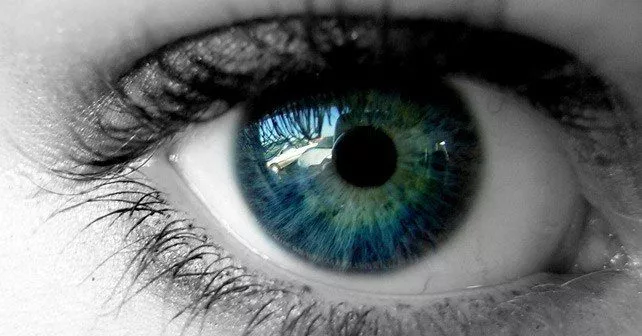
As one of the most complex organs on the human body, the eye continues to surprise over and over again, as scientists find out more about it. From pupils expanding at the sight of someone you love, to 500 visible shades of grey, find out more about the eye than you ever knew before!
- Despite the amount of noise a new-born baby makes, they can’t actually produce tears when they cry: their tear ducts don’t start working until they are between 4 – 13 weeks old.
- Both eyes have a blind spot on the back of the retina where the optic nerve attaches, howwever you won’t notice this, due to the way eyes work together to fill gaps in your vision.
- Everyone around the world with blue eyes shares a common ancestor: the first person with blue eyes lived around 6,000 – 10,000 years ago, and before that, everyone had brown eyes.
- If you wore glasses that flipped images upside down, your brain would eventually correct your vision, and you’d see things the right way up.
- Some eye surgery uses shark corneas, as they are the most similar to a human cornea.
- Your nose runs when you cry due to tears from your eyes draining into the nose.
- Mascara wands cause the most injuries out of any cosmetics.
- The muscles that move the eyes are the fastest and strongest muscles in the body: they are 100 times more powerful than necessary.
- You blink more when you talk, and less when you’re reading off a computer screen or paper – the reason behind why your eyes get tired more.
- People generally read 25 times slower on screen than on paper.
- The human eye can see 500 shades of grey.
- New-born babies are colour-blind, and men are more predisposed to colour-blindness than women.
- Retina scans are being used more for security purposes: the fingerprint has 40 unique characteristics, whereas an iris has 256.
- Pupils increase their size under the effect of strong emotions, such as attraction, disgust and interest.
- The eye has amazing healing powers: it can filter out dust, dirt and heal scratches in under 48 hours.
- Eyes are the second most complex organ in the body, after the brain.
- The function of tears is to keep the eye clean, but scientists haven’t yet worked out why we cry when we’re upset.
- One blink usually lasts around 100 – 150 milliseconds, and we blink 5.2 million times a year on average.
- Over 10 million color hues can be detected by the eye, but it can’t pick up ultraviolet or infrared light.
- Around half of the brain is used for seeing and vision.

No comments:
Post a Comment